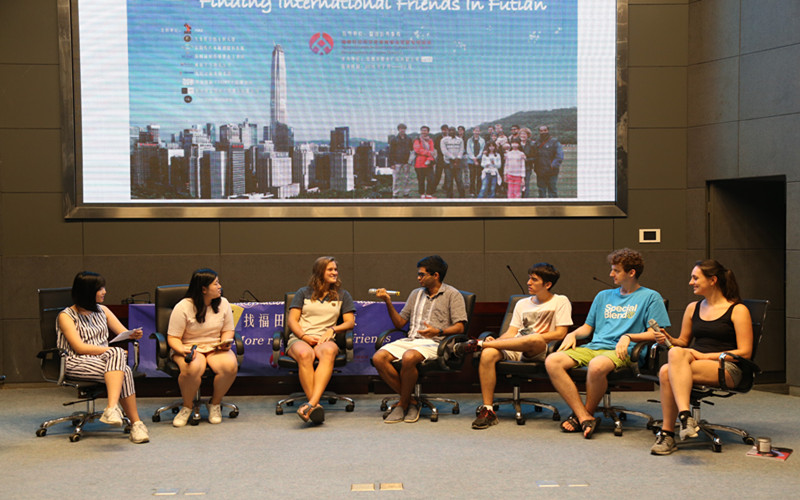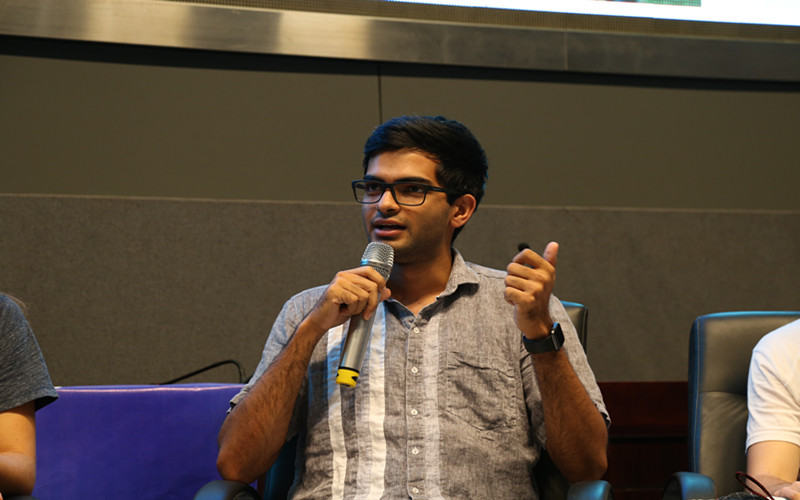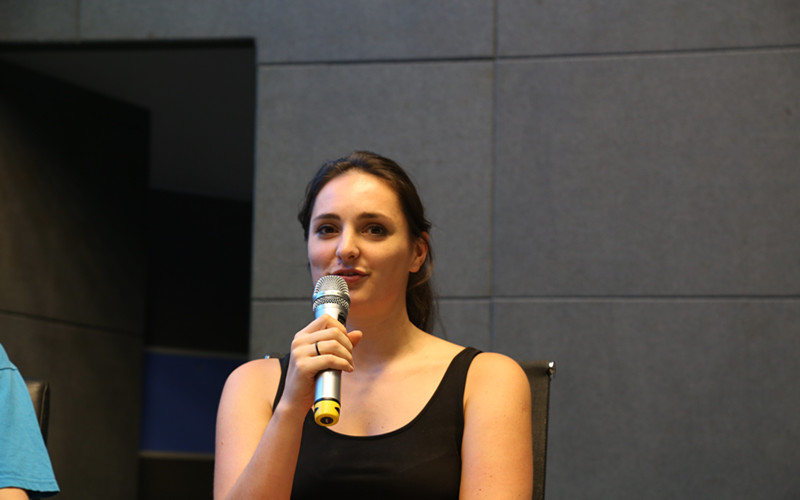Expat makers call for longer visa durations
Writer: Zhang Qian | Editor: Jane Chen | From: | Updated: 2016-08-25

Five expatriate makers attending a forum on the city's startup environment, organized by the Futian District Government, yesterday.Courtesy of the organizer

Pruthvikar Reddy

Julia Kaisinger
Email of the writer: zhqcindy@163.com
Pruthvikar Reddy, from London, came to China on a two-year multi-entry visa to join a-111-day incubation project at HAX Huaqiangbei in Futian, Shenzhen, but many of his counterparts from other countries cannot stay long enough to complete each step of their projects since their Chinese visas expire more quickly.
"I know some countries offer 10-year multi-entry visas like the America, but for holders of 30-day visas, they have to travel back to their countries to [renew their] visas every four weeks, which is time-consuming and expensive,"said Reddy.
He was one of the five expatriate makers invited to attend a forum on the city's startup environment, organized by the Futian District Government, at Huaqiangbei Electronic World yesterday. Every company's project requires a different amount of time, but the group members might not have the same visa durations, which makes it difficult for some startups to finish their projects, said Reddy. Reddy is in charge of a startup called Motionmetrics. With Jordan Salmon, who also came from London, Reddy has developed an intelligent skiing insole that provides real-time guidance to skiers through sensors and headphones.
The group is one of the 15 hardware startups that have been selected to join the Hax Huaqiangbei incubator this year. HAX is an international hardware accelerator, which set up a company in Huaqiangbei in December 2013. Over the last few years, the accelerator has helped over 100 startups from all around the world. An operation manager at HAX, surnamed Wu, said that visa problems have been an obstacle for makers from certain countries.
"Some makers would like to attend a conference in Hong Kong, for instance, but then their Chinese visas would be invalid once they go across the border, if they were only granted a 30-day single-entry visa," said Wu at the forum yesterday.
Wu added that nationals from some Asian countries like Thailand and India are having greater difficulty obtaining and extending their visas. The manager suggested that the local government issue special visas to makers who join incubation projects in Shenzhen.
An Austrian maker, Julia Kaisinger, also said that one of her friends, a Kazakhstan national, came to HAX Huaqiangbei for the 111-day incubation program last year on a 30-day visa, but the authority would only grant him another 30 days in China, which was not enough for him to finish his project.
According to China's visa regulation, if an expat needs to stay in China longer, he or she shall apply for the corresponding extension, with all required materials, at the entry-exit administration department of the local public security bureau seven days before the expiration of the stay period specified on the visa.
The bureau will decide the length of the visa extension based on the materials provided by the applicant.
Kaisinger and two of her companions, Ronja Landvogt from Germany and Sean O' Really from Hong Kong, are working on an intelligent desktop insect farming machine in Huaqiangbei. The startup, called Livin Farm, is developing a machine that can cultivate insects that provide nutritious protein for the human body.
At yesterday's forum, the five makers talked about the projects they were working on. The complete and diversified hardware suppliers, manufactures as well as factories at Huaqiangbei and areas around Shenzhen provide a fast and convenient environment for these hardware makers.
"Speed is the biggest adventure at Huaqiangbei," said Jordan Salmon, Reddy's partner at the startup. "To produce hardware products here is faster, cheaper and easier than any other place in the world."